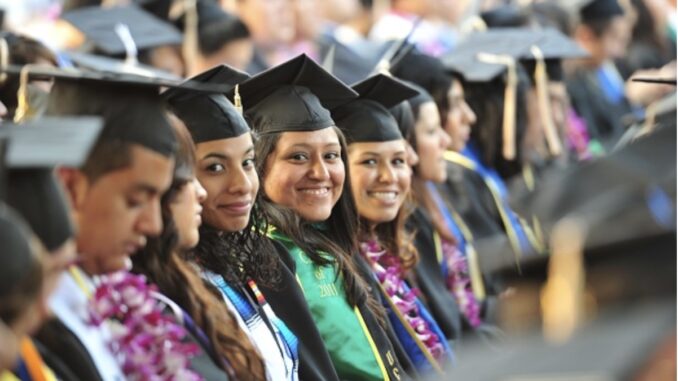
BY: SAMANTHA LORISTON
While the legal futures of Deferred Action for Childhood Arrivals (DACA) students remain uncertain due to a pending federal court case, they also face significant financial hurdles. Many turn to programs such as TheDream.US that are crucial in providing financial support to undocumented students, helping bridge the financial gap for those ineligible for federal aid. The scholarships enable them to pursue higher education despite these obstacles.
Applications for TheDream US open on November 1, offering an opportunity for many students facing these challenges.
TheDream.US offers two main scholarship programs aimed at supporting students’ educational goals. The National Scholarship is available to high school graduates or community college graduates, providing up to $33,000 to cover tuition and fees for a bachelor’s degree at one of their partner colleges. The Opportunity Scholarship, on the other hand, offers up to $80,000 for students in states with limited access to in-state tuition or financial aid. This scholarship covers tuition, fees, housing, and meals.
The financial challenges facing undocumented students extend beyond tuition. Many struggle with securing housing, obtaining work authorization, and planning for the future due to ongoing legal battles over DACA.
Censar Ventura Tapia, the program manager at the Center for Youth and the Future of Work and a DACA recipient, has \personal experience navigating these barriers.“Before DACA, finding housing was difficult because landlords required social security numbers, which we often didn’t have,” Tapia explained. “Even after DACA, many of us hadn’t built credit, so accessing housing remained a challenge.”
While scholarships like TheDream.US have provided much-needed support, the uncertainty surrounding DACA has left many students feeling like “second-class citizens,” Tapia added. “Without legal protections, many young people would be left out, unable to support themselves or pursue higher education,” he warned.
Sergio Leon Hidalgo, a research fellow at Brooklyn College’s Immigrant Student Success Office, echoed similar sentiments. As a recipient of TheDream.US scholarship, Hidalgo noted that it “opened the door to education” and gave him the tools to navigate a challenging job market. He emphasized the importance of scholarships like these in providing undocumented students with equitable access to education, stating, “Regardless of where we were born, we should have the opportunity to contribute to our communities.”
However, the fear of losing DACA protections continues to weigh heavily on students. For many, the end of DACA would not only limit educational opportunities but also threaten work authorization, making it difficult to support themselves and their families.
As the debate over immigration reform continues, programs like TheDream.US remain one of the few safety nets for undocumented students. Advocates and recipients alike are calling for broader financial aid reform to ensure that undocumented youth have access to higher education and the chance to build a stable future, regardless of their immigration status.
